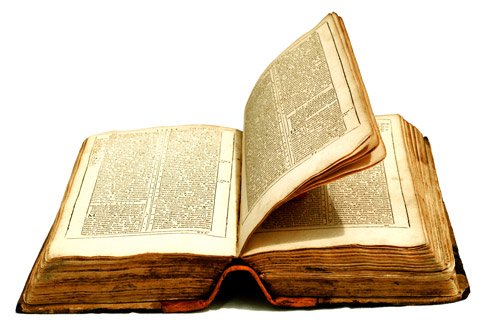
A LITTLE BOY WHO WISHED
TO KNOW HIS FORTUNE.
AUNTIE," said an earnest little fellow, about nine years old, "I do wish I knew my fortune."
"Your fortune?" said his aunt, looking at him with surprise and amusement in her face, "what do you want to know about your fortune, little man?"
"Now, don't laugh, auntie, but I should like to know that some day I am to be very rich, and have a beautiful house to live in, and a grand carriage like the Lord Mayor's; and then I should buy you lots of nice things, and we would not live in this dull house any longer."
“I thank you very much for wishing me to share in your good fortune," said his aunt, "but is there nothing else you wish for?"
"O yes, auntie. I want to know a great many things, and be clever, like the men who build churches, bridges, and railways."
"Well," said his aunt, smiling at the eager little face before her, "you are not the only boy I have heard of who wished to know his fortune. I read of a very wise and good man, who, when a boy, paid a visit to the gypsies, for he was foolish enough then to believe that they knew something of the future. When this boy grew up, he was very learned, and much honored, but I am sure that it was not through anything the gypsies had told him. Do you know, Norman, I think I can tell you a little of your fortune myself?"
"Why, auntie! You don't look one bit like a fortune-teller."
"Perhaps you'll excuse my not wearing a red cloak, and staining my face with walnut juice, but I have something much better than the gypsies have to help me," said his aunt.
"Why, auntie, what can it be? I should so like to see it."
"Well, Norman, it is something very old, and very precious,—in fact, it is a remarkable book which was written in strange letters by some men who lived a great way off from England."
"Did it come over in the old box which came from India, auntie? May I just look at it I won't hurt it in the least. I shall be so glad if it tells me that I am to be rich and clever."
"It can tell you something better even than that," said his aunt, "for it tells you how you may be good and happy here, and enjoy a blessed eternity in heaven."
"Now, auntie, I know you mean the Bible;" and a look of disappointment passed over the child's face.
"Yes," said his aunt, "it is the Bible I mean; and it tells me that if you, my dear, but follow its teachings, you will be heir to an inheritance incorruptible and undefiled, and that fadeth not away. 'Though by it I cannot foretell that you will be rich or great in this world, yet it tells me that eye hath not seen, nor ear heard, the things that God has prepared for those who love him.'
"And there are also many encouraging promises in regard to this life, which you and I must read together, about riches and honor. But now, my dear boy, go and play, for I must be at work."
Norman's hands were soon busy with his play-things, but he did not forget what his aunt had said about his fortune and the wonderful book.
London Children's Friend.